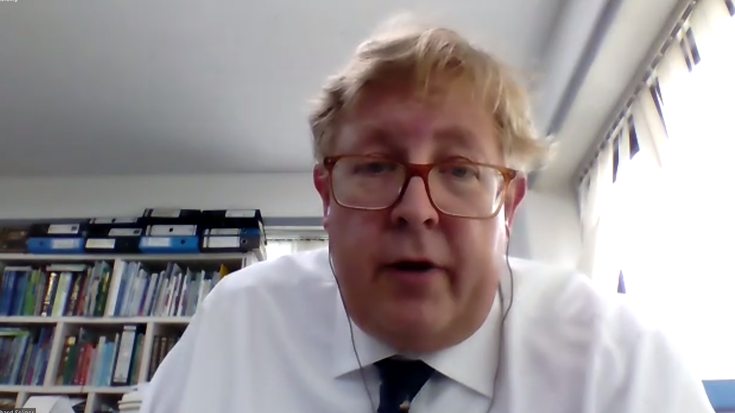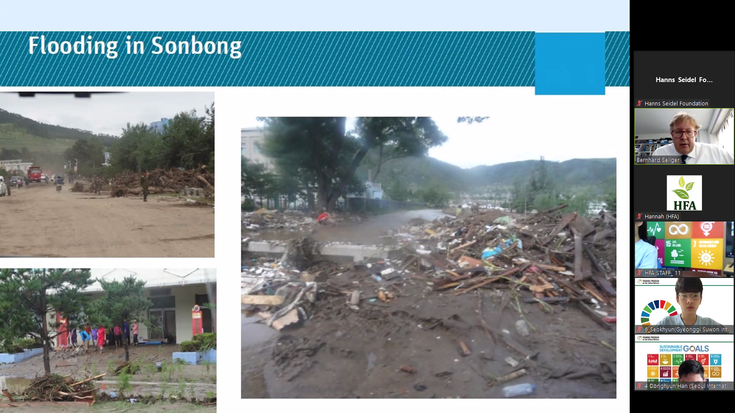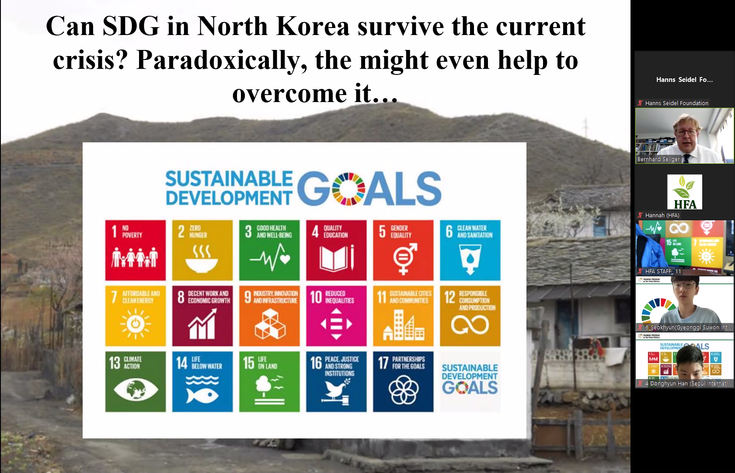Special Lecture
A Lecture on North Korea, Climate & SDGs

The event was hosted by Hope to the Future Association (HFA), an associated CSO with the United Nations Department of Global Communications (UN DGC). The lecture was held under the theme of “Democracy, Peace and Development on Climate”. After introducing the activities of HSF Korea more generally, Dr. Seliger then transitioned to a lecture on North Korea. Within the field of sustainability and development, HSF prefers to take North Korea as a partner. Taking a slightly different approach in comparison to other organizations, it’s in the interest of HSF to provide education and know-how on topics related to the aforementioned fields. As environmental issues affect the whole planet, North Korea is no exception. While supporting peaceful reunification, the Foundation aims to help educate North Koreans in fields related to sustainable development, such as forestry and wildlife protection. HSF has organized cooperative projects for over a decade, such as the 2010 Sustainable Development Mechanism (SDM, formerly CDM) hydropower project. Furthermore, HSF supported the initiation of North Korea into the Ramsar Convention and the EAAFP.

Deforestation is increasingly a problem in North Korea, especially when considering the frequency of seasonal floods. The felling of mountain forests reduces the protective effect from floods, especially dangerous for the numerous villages built around the bases of North Korean mountain ranges. This danger was exemplified by the 2015 flood of Sonbong, an area in Rason, North Hamgyong Province. The flood completely destroyed the village and left an estimated 400 residents dead. HSF aims to decrease such catastrophes by assisting the locals through training, forestry projects and by educating North Korean forestry experts in Germany. The role of forests are also important in carbon sink dynamics and give yet another reason to combat deforestation in North Korea. Despite the COVID-19 pandemic, North Korea has still continued projects and promotional broadcasts on the preservation of wetlands.

The country is currently suffering from new floods and food shortages, induced by climate events, hot temperatures, and continued sanctions. North Korea will struggle following SDGs, as the challenging circumstances of daily life require immediate attention, making it difficult to consider more long-term issues. Dr. Seliger gave the audience an overview of the various projects HSF Korea has been involved in throughout the years and their relations to global challenges, such as following Sustainable Development Goals, promoting peace, and capacity building in North Korea. The event concluded with a Q&A session.
